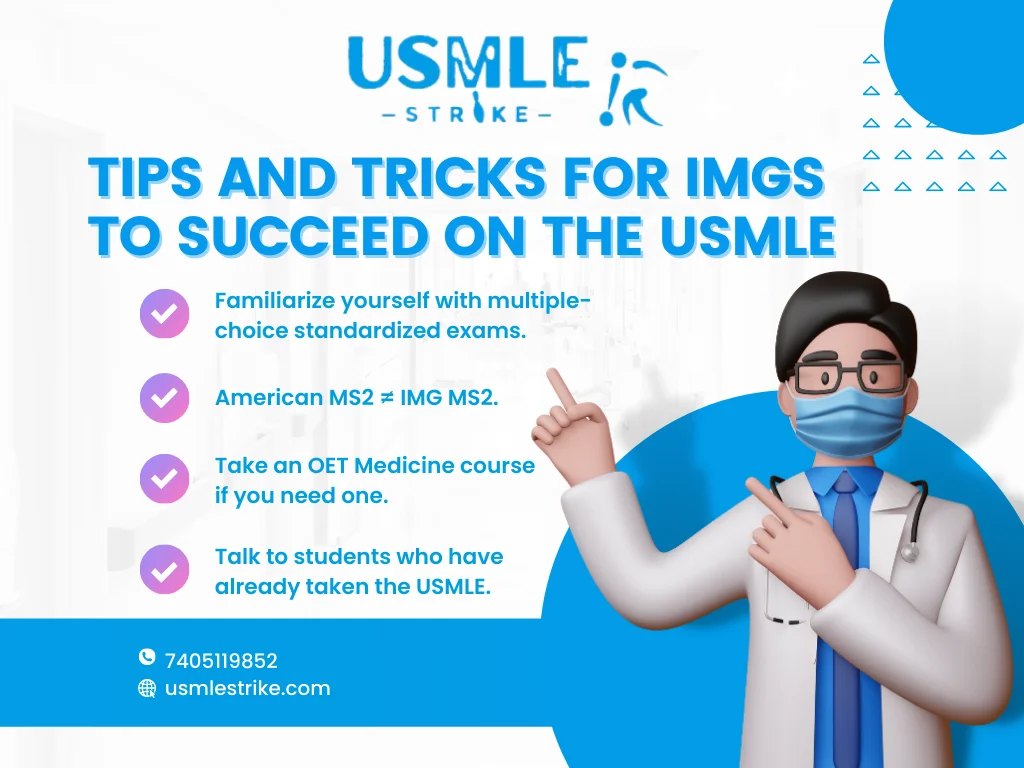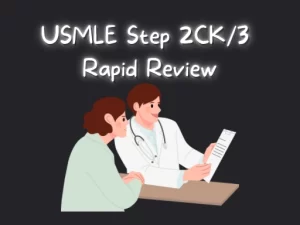Embarking on the journey to become a licensed medical professional in the United States involves passing several crucial exams, one of which is the USMLE Step 1. This exam is pivotal as it assesses your understanding of fundamental medical sciences, which are crucial for clinical practice. USMLE Step 1 Exam continues to be a cornerstone for medical students, requiring thorough preparation and a deep understanding of various subjects. This article will provide an in-depth look at the best USMLE step 1 subjects, highlighting their significance, content, and tips for effective study.

Best USMLE Step 1 Subjects
The best USMLE step 1 subjects encompass a wide range of basic sciences. These subjects form the foundation of medical knowledge and are essential for clinical practice. The primary areas covered include:
- Anatomy
- Behavioral Sciences
- Biochemistry
- Microbiology
- Pathology
- Pharmacology
- Physiology
- Genetics
- Immunology
- Public Health Sciences
Each of these best USMLE step 1 subjects is critical, and understanding their integration into clinical scenarios is vital for the exam.
Anatomy
Anatomy is one of the fundamental best USMLE Step 1 subjects. It involves the study of the structure of the human body, including bones, muscles, organs, and tissues. Key areas of focus include:
- Gross Anatomy: Detailed study of body parts visible to the naked eye.
- Neuroanatomy: Structure and function of the nervous system.
- Embryology: Developmental stages of the human body from conception to birth.
For comprehensive preparation, refer to the Best Anatomy Resource for USMLE Step 1, such as Gray’s Anatomy Review, First Aid for the USMLE Step 1, and Anki flashcards tailored for anatomy.
Behavioral Sciences
Behavioral Sciences encompass the psychological and social aspects of patient care. As one of the best USMLE Step 1 subjects, it includes:
- Psychiatry: Mental health disorders, their diagnosis, and treatment.
- Psychology: Human behavior, development, and learning processes.
- Sociology: Impact of social factors on health and disease.
A strong grasp of these topics aids in understanding patient behavior, improving communication, and providing holistic care.
Biochemistry
Biochemistry is essential for understanding the chemical processes within and related to living organisms. Key topics within this best USMLE Step 1 subjects include:
- Molecular Biology: Structure and function of nucleic acids and proteins.
- Metabolism: Biochemical pathways of carbohydrates, lipids, and proteins.
- Enzymology: Enzyme structure, function, and regulation.
Knowledge of biochemistry is crucial for understanding disease mechanisms and therapeutic interventions.
Microbiology
Microbiology subject cover the study of microorganisms, including bacteria, viruses, fungi, and parasites. This best USMLE Step 1 subjects includes:
- Bacteriology: Characteristics and pathogenicity of bacteria.
- Virology: Structure, replication, and pathogenesis of viruses.
- Mycology: Study of fungi and their medical importance.
- Parasitology: Life cycles and disease mechanisms of parasites.
Understanding microbiology is essential for diagnosing and treating infectious diseases.
Pathology
Pathology subject focuses on the study of disease processes. As a key best USMLE Step 1 subjects, it includes:
- General Pathology: Fundamental mechanisms of disease, such as inflammation and neoplasia.
- Systemic Pathology: Diseases affecting specific organ systems, including cardiovascular, respiratory, and gastrointestinal systems.
A thorough understanding of pathology is vital for diagnosing diseases and understanding their progression.
Pharmacology
Pharmacology is the study of drugs and their effects on the body. Key areas within this best USMLE Step 1 subjects include:
- Pharmacokinetics: Absorption, distribution, metabolism, and excretion of drugs.
- Pharmacodynamics: Mechanisms of drug action and their physiological effects.
- Therapeutics: Clinical use of drugs to treat diseases.
Knowledge of pharmacology is crucial for prescribing medications safely and effectively.
Physiology
Physiology subject involves the study of normal bodily functions. This best USMLE Step 1 subjects covers:
- Cell Physiology: Functions of cellular structures and processes.
- Organ System Physiology: Functions of major organ systems, including cardiovascular, renal, respiratory, and endocrine systems.
Understanding physiology is essential for comprehending how the body maintains homeostasis and responds to changes.
Genetics
Genetics is increasingly important in modern medicine. This best USMLE Step 1 subjects includes:
- Molecular Genetics: Structure and function of genes at a molecular level.
- Clinical Genetics: Genetic basis of diseases and genetic testing.
A strong foundation in genetics is crucial for understanding inherited diseases and personalized medicine.
Immunology
Immunology focuses on the body’s defense mechanisms against infections and diseases. This USMLE Step 1 subject includes:
- Innate Immunity: Non-specific defense mechanisms.
- Adaptive Immunity: Specific immune responses involving B and T cells.
- Immunopathology: Immune system disorders, including allergies and autoimmune diseases.
Understanding immunology is essential for diagnosing and treating immune-related conditions.
Public Health Sciences
Public Health Sciences include topics related to health promotion and disease prevention. This best USMLE Step 1 subjects covers:
- Epidemiology: Study of disease distribution and determinants.
- Biostatistics: Application of statistics in medical research.
- Health Policy: Understanding health care systems and policies.
Knowledge of public health sciences is crucial for addressing health issues at the population level.
USMLE High Yield Topics
- Cardiovascular System: Cardiac physiology, congenital heart defects, and pharmacology.
- Renal System: Glomerular diseases, renal physiology, and electrolyte imbalances.
- Endocrinology: Diabetes, thyroid disorders, and adrenal gland pathology.
- Microbiology: Bacterial, viral, and fungal pathogens along with their clinical presentations.
- Pathology: Neoplasia, inflammation, and hemodynamic disorders.
Classification of the USMLE Step 1
| Dimension | Category | Percentage |
| System | General Principles | 15%–20% |
| Individual Organ Systems | 60%–70% | |
| Biostatistics, Epidemiology, Population Health | Included | |
| Process | Normal Structure and Function | 10%–15% |
| Abnormal Processes | 55%–60% | |
| Principles of Therapeutics | 15%–20% | |
| Psychosocial, Cultural, Occupational, Environmental Considerations | 10%–15% |
Tips for Studying the USMLE Step 1 Syllabus
Boost your USMLE Step 1 preparation by following these proven strategies:
1. Prioritize High-Yield Topics
- Concentrate on USMLE high yield topics like Pathology, Physiology, and Pharmacology.
- Use resources such as First Aid for the USMLE Step 1 and Pathoma.
2. Create a Study Plan
- Divide your preparation into phases: foundation building, integration, and revision.
- Dedicate at least 6–8 weeks exclusively to reviewing high-yield content.
3. Utilize Question Banks
- Practice with UWorld and NBME practice exams to familiarize yourself with exam patterns.
- Analyze explanations to understand concepts thoroughly.
4. Leverage Visual and Audio Aids
- Use tools like Anki flashcards, Sketchy Medical, and OnlineMedEd.
- Watch videos for complex topics such as biochemistry pathways.
5. Take Regular Breaks
- Incorporate Pomodoro techniques to stay focused.
- Prioritize sleep and healthy habits to optimize memory retention.
6. Test Yourself Regularly
- Attempt timed, full-length practice tests to simulate real exam conditions.
- Identify weak areas and revisit them.
USMLE Step 1 Exam Pattern
Understanding the USMLE Step 1 exam pattern is crucial for effective preparation. The exam consists of:
- Eight Hours of Testing: Divided into seven one-hour blocks with about 40 questions per block.
- Multiple-Choice Questions: Approximately 280 questions covering various USMLE Step 1 subjects.
- Breaks: A 45-minute total break time is available, which can be used between blocks or during the exam.
- Tutorial: An optional 15-minute tutorial at the beginning provides an overview of the test interface.
Familiarizing yourself with this USMLE Step 1 exam pattern will help you manage your time effectively and reduce exam-day anxiety.
Best Resources for USMLE Step 1
To excel in the Best USMLE Step 1 subjects, using the right resources is vital:
- USMLEStrike: Provides a free, high-quality USMLE Step 1 question bank with detailed explanations, customizable tests, and performance analytics.
- UWorld: Renowned for its extensive QBank with realistic practice questions and detailed explanations.
- First Aid for the USMLE Step 1: A comprehensive review book highlighting high-yield topics.
- AMBOSS: Offers a vast question bank and integrated study materials.
- Kaplan: Known for its review courses and extensive question banks.
These resources are designed to cover the best USMLE Step 1 subjects and will aid in thorough preparation. Using a combination of these tools will enhance your study efficiency and boost your chances of success.
USMLE Step 1 Preparation
USMLE step 1 preparation, it’s crucial to develop a well-structured study timeline. Ideally, you should allocate about 6-8 months for preparation. This time frame allows you to thoroughly explore the extensive syllabus, engage in comprehensive study sessions, and complete ample practice exercises.
This extended preparation period also provides a buffer to manage unforeseen challenges or particularly difficult topics, ensuring you can address these hurdles without undue pressure.
Approaching your USMLE Step 1 preparation as a marathon rather than a sprint is advisable. Establish a detailed study plan early on and adhere to it diligently. Consistency and persistence in following your timeline can significantly smooth your path to achieving success on the USMLE Step 1.
Conclusion
Understanding and mastering the best USMLE Step 1 subjects is crucial for success in this challenging exam. Each subject plays a vital role in building a solid foundation for clinical practice, and thorough preparation is essential. By following a strategic study plan, utilizing high-yield resources, and actively engaging with the material, you can confidently approach the USMLE Step 1 and achieve a passing score. Remember, consistency and perseverance are key. Good luck on your journey to becoming a licensed medical professional.
Read Also: Revision Notes for the USMLE Step 1 Exam





